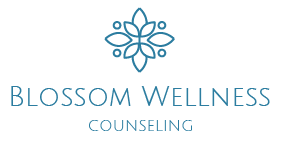Blog
Blog

How to Break the Cycle of Generational Addiction
Let's talk about something that affects not just individuals, but entire families: addiction. It's a complicated issue that can spread its roots deep, leading to what experts call generational addiction. This means that addictive behaviors or substance abuse can persist across many generations within a family.
Now, to really grasp what generational addiction is all about, we've got to take a step back and look at its historical background and how society has influenced its development. Throughout history, the use of substances has been intertwined with cultural norms, sometimes even being glorified or accepted without much thought. But as time went on and we learned more about the addictive nature of substances like alcohol and opium, attitudes started to shift. Laws were put in place, and public health campaigns emerged, recognizing addiction as a serious societal issue that needed attention.
And let's not forget the impact of mass media and advertising. They've played a big role in shaping how we view substance use, often making it seem cool or normal in movies, TV shows, and advertisements. This kind of environment can make it easier for addiction to take hold and keep its grip on families.
The Cycle of Addiction Within Families
So, what does this all mean for families caught in the cycle of addiction? Well, it's tough. Generational addiction is a vicious cycle that's hard to break. It often starts with exposure to addictive behaviors or substances within the family unit. Children growing up in households where addiction is present might see it as just a normal part of life or develop their own ways of coping with stress and trauma.
As these kids grow up and start families of their own, they might unknowingly repeat the same patterns they saw in their upbringing, continuing the cycle for another generation. Breaking free from this cycle isn't easy, though. It often requires intervention and access to resources that can help individuals and families overcome addiction and build healthier lives.
Emotional, Psychological, and Physical Consequences
Emotionally, living with addiction can feel like walking on eggshells. You're never quite sure when the next outburst or meltdown will occur. Anxiety becomes your constant companion, and trust? Well, that's a luxury you can't afford. The instability of addiction breeds a sense of insecurity that can linger long into adulthood, affecting your ability to form healthy relationships and navigate life's challenges.
Psychologically, the impact can be intense. Growing up in an environment where addiction reigns can warp your sense of self-worth and identity. You might struggle with feelings of guilt, shame, or inadequacy, wondering if you somehow caused or contributed to your loved one's addiction. And let's not forget the relentless cycle of enabling, denial, and codependency that often accompanies addiction, further entangling your sense of self in a web of dysfunction.
Physically, the toll of generational addiction can be devastating. Substance abuse takes a toll on the body, whether it's through the direct effects of drugs and alcohol or the secondary consequences like neglecting health care, poor nutrition, and exposure to dangerous environments. And if addiction runs in your family, you might be genetically prone to developing similar struggles yourself, which makes breaking the cycle even more urgent.
But the most heartbreaking aspect of generational addiction is its impact on family relationships. Addiction has a way of tearing families apart, leaving behind a trail of broken trust, fractured bonds, and unresolved trauma. Children of addicts often find themselves thrust into roles far beyond their years, whether it's playing caretaker to a parent who can't take care of themselves or shouldering the burden of keeping the family's dark secret hidden from the outside world.
Breaking Free From the Cycle
So, how do we break free from this cycle? How do we break free from shame and stigma? How do we heal the wounds of generational addiction and chart a new course for ourselves and future generations? It won't be easy, but it is possible.
Start talking about addiction openly and honestly. Shame and secrecy only strengthens the cycle, while empathy and understanding pave the way for healing. Reach out to trusted friends, family members, or professionals who can offer support and guidance. You are not alone in this journey.
Education is key. Understanding the nature of addiction, its causes, effects, and treatment, is essential for breaking free from its grip. Knowledge empowers us to make informed decisions and challenge the destructive patterns that have plagued our families for generations.
Seek professional help if you need it. Therapy, counseling, support groups—there are countless resources available to help you navigate the complex terrain of addiction and recovery. Remember, asking for help is not a sign of weakness but of strength.
Practice self-care and compassion. Healing from generational addiction is a marathon, not a sprint. Be patient with yourself and celebrate every small victory along the way. Surround yourself with people who lift you up and remind you of your worth.
Breaking the chains of generational addiction won't happen overnight, but with courage, perseverance, and a whole lot of love, it is possible.
Get the support you need to create calm confidence that lasts
Get the support you need to create calm confidence that lasts
Copyright@2023 Blossom Wellness Spa, Inc.
Copyright@2023 Blossom Wellness Spa, Inc.



